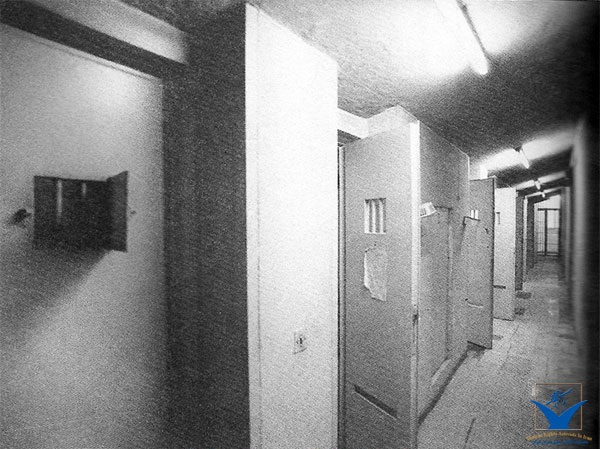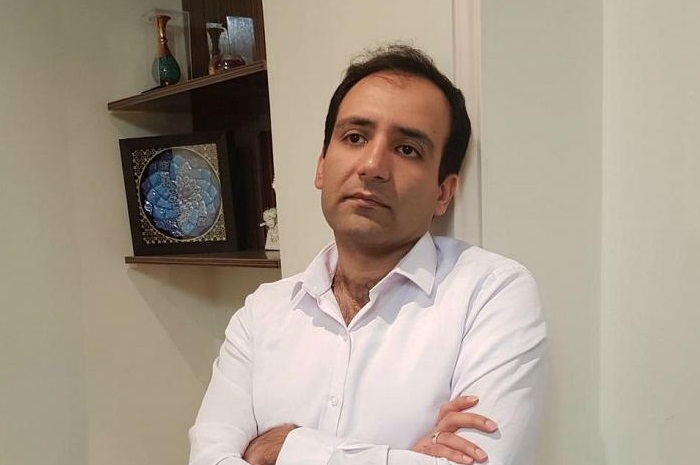Student activist and former political prisoner Majid Tavakoli has given an account of torture he endured in a December 23, 2018 Twitter thread.
The torture he describes is truly agonizing and cruel. In recent days, reports of the torture of Haft Tapeh Sugar Company worker Esma’eil Bakhshi have provoked many responses.
The full text of Tavakoli’s account appears below:
In Iran, our approach to talking about torture has taken a wrong turn.
The horror, bitterness, and immoral hardship of actual torture has been buried under incorrect terminology.
A Twitter thread on some of my personal experiences with torture:
It’s the duration of physical torture which is significant. With a few hits, a head or hand or foot can be broken and a person sent off to the hospital, which means being saved from the torture and coercion. When physical torture goes on for hours, then days, it becomes a fatal sort.
Torture is when you have to put up with many ceaseless blows from the hands and feet of multiple people from 8:00 in the morning til 10:00 at night and there’s a chance it will still go on. Ten years ago, night time interrogations were limited and exceptional; if not, the sessions would have gone on for longer in 2007/2008.
Blows are usually made to the forehead or top or back of the head to avoid leaving any marks. When the interrogator messes up, he hits you everywhere. These blows are very painful and hard. The main pain comes on later, that night and afterwards, and remains for days.
Blows to the top of the head, for instance, are so heavy they cause serious injury to the lower jaw. Once you’re back in your cell, it’s impossible to open your mouth. You can’t put a piece of sugar in your mouth, much less proper food. Maybe, with some difficulty, you’d be able to moisten your mouth with water.
In the Ward 209 rooms with acoustic walls, it’s very ordinary for them to beat your head against the walls with wall protection. The shoddy quality of the walls means that nails or wooden edging sometimes wound the head. Usually, though, it’s pain without wounds.

One of the corridors of Evin Prison
So long as physical torture is in play, psychological torture, threats, obscenity, insults, degrading treatment, and so on… aren’t important. But witnessing the torture of others, the mounting number of other detainees, and the sounds they make under torture can break down a human being. Especially when the person who conducts the torture and makes the threats against friends and family is introduced.
En masse torture is one of the worst kinds. When they put their shoe on the face of someone who’s fallen onto the ground and force him up again with kicks or, worse than anything else, force him up by yanking his hair and punching him several times in the head and body, while they have his hair pulled up (thank God they shaved my head my second time in detention!)
Sudden, rapid transfer to the interrogation room (in some cases abruptly waking the detainee up in the middle of the night) and the immediate commencement of beatings causes severe convulsions and other subsequent damage. When the interrogator loses control of himself, and then afterwards proudly tells you “You remember that night I gave you a stroke?” it shows a failure of supervision.
Insults and degrading treatment have no limit and mostly depend on the interrogator. Threats, however, are related to the case, the country’s political conditions, the focus and supervision of the judiciary, and so on. The types of torture they use outside of Tehran are usually more severe. Only in official detention facilities can you speak of any rules for torture.
Solitary confinement is, like hunger strike, one of the haziest parts of a person’s time in prison. When solitary confinement takes place at the same time as interrogation, total lack of information from the outside destroys your sense of time and place. If this weren’t the case, punitive solitary confinement for limited and long terms following the verdict would not be first among psychological tortures.
Even if the pain and suffering of one human being is not comparable to that of others, for the interrogators, the five-meter-square, super quiet cells of areas like Phase Three, Floor Three, 240 make for a tougher, more serious solitary confinement. Of course for these interrogators phrases like “Send him to 101” or “Clear out 101 for him” (in Ward 209) are used to break people in solitary.
Torture is a reality in prison. The pain and suffering which results from it is, for the tortured person, the most real thing they experience in those hard, bitter days. But if [the way the torture is discussed] is accompanied by exceptions and errors like an emphasis on the use of torture devices, forced medication, rape, and so on… we lose sight of the essential point of torture itself.
In a real hunger strike, the flesh melts from a person in such a way that his bones are tormented feeling the ground even through two thick blankets. In a dry hunger strike, the tongue is parched and cannot form some words. In just this way, in solitary confinement memory and will shrivel up and the mind loses the capacity to think.
After seven years in prison and a total of one year in solitary across three detentions and more than 700 hours in interrogation, I know what torture, solitary confinement, insult, degrading treatment, threats, and so on do to a prisoner. But prisoners are not greatly interested in being questioned, and work hard to forget the torture they’ve endured.
Prisoners prefer oblivion to giving voice to their own pain. Others must give voice to their pain.
Torture is a reality which does not need to be exaggerated. Salt should not be rubbed in the wounds of torture with delusions and tall tales. It is the responsibility of each individual to make sure that only the bitter, painful truths of torture are spoken so that, with the dishonor of violence, it will stop.
Without fundamental changes in the structure of violence (disciplinary and judicial), there is no prospect of doing away with torture. Totally preventing warrantless detention, constant recording and reporting on places of detention and interrogation times, and installing cameras in interrogation rooms are duties of power. Until these actions are taken, the entire governing structure (representatives, the heads of branches of government, the president, and so on) are implicated and at fault.

